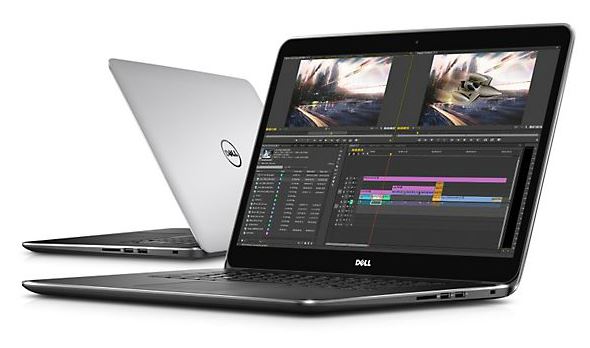Dell's cloud BIOS security checks your PC is malware free as it boots


New Dell Precision laptops will be among those equipped with BIOS verification
Dell has unveiled software which uses the cloud to protect computer systems from persistent threats and malware attacks during the initial process of turning a PC on.
Its new Dell Data ProtectionEndpoint Security Suite Enterprise includes post-boot BIOS verification which it's claimed will enable customers to ensure that their PCs remain free from malware during the initial startup process.
Dell's security solution integrates technology by Cylance, a cyber security company which uses artificial intelligence and machine learning to 'proactively prevent' potential security threats.
BIOS verification works by using a cloud environment during the initial PC booting process to compare and test the firmware installation against data containing official measurements of what it should look like held within the Dell BIOS lab.
Dell says that the new system will help extend security throughout the "entire device lifecycle" and provide greater visibility for administrators looking to prevent malware attacks against systems during the time they're powering on.
By conducting the BIOS test in the cloud, rather than on the device itself, users can be assured that the test is carried out in a secure environment, rather than on a potentially compromised PC.
Dr Kevin Curran, senior member of Institute of Electrical and Electronics Engineers (IEEE) and security lecturer at Ulster University, said the introduction of BIOS verification into Dell systems is good for cyber security.
"This is a welcome move from Dell. More needs to be done in monitoring the integrity of system images and the integration of the cloud as outlined by Dell is the first time we have seen such a method used by the main stream computer manufacturers," he said
"Malware detection in part relies on the detection of modifications to core system files but this new Dell Endpoint Security Suite Enterprise approach attempts to verify the integrity of the all important BIOS," Curran continued before explaining that an extra layer of protection at boot up is very important for system security.
"This is crucial as changes to the BIOS would allow attackers to then implant malware which bypasses all known malware detection mechanisms. It would allow them to basically own the compromised system hence the importance of making sure a systems BIOS is unchanged".
Brett Hansen, executive director of data security solutions at Dell claimed that the new BIOS security system will help users protect themselves against increasingly complex attacks.
"The growing complexity of BIOS-specific attacks, and with new malware variants possessing the ability to reinstall themselves within the BIOS, organizations need a more sophisticated way to know that their systems have not been compromise," he said.
BIOS verification will initially feature on Dell systems equipped with a sixth generation Intel chipset, which currently includes Latitude PCs and a select number of Dell Precision, OptiPlex, and XPS PCs, as well as Dell Venue Pro tablets.